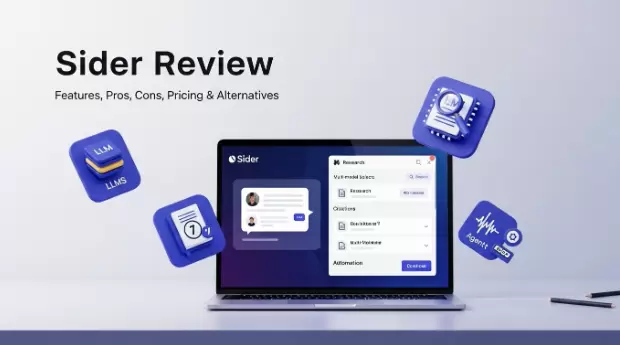Cloud computing is a new innovative technology that many businesses have widely adopted in recent times. The public and private sectors have begun to use the cloud to shape their business architecture to obtain greater performance at lower costs. According to a study, in 2022, the worldwide public cloud computing industry will be worth $495 billion. Cloud technology is highly secure and allows businesses to increase their productivity. Many small businesses have benefited from cloud computing to take their business to the next level.
Cloud computing was introduced several years ago, but its popularity remains the same amid other rising technologies. There are countless reasons why businesses are driven toward cloud computing since it helps with everything from scaling infrastructure to delivering a web-based application. According to a study, the worldwide cloud applications market was worth $133.6 billion in 2021 and is anticipated to reach $168.6 billion by 2025. Businesses can focus more efforts on expanding their operations by migrating to flexible cloud solutions.
Cloud Computing:
Cloud computing allows businesses to access their apps and services and store their data securely. The advantage of owning a cloud is that the business does not need to worry about maintaining it. The storage size is infinite, and a system with an internet connection is enough. After adopting the cloud, enterprises have started to go with the flow of the continuous deployment model to avail of exciting features currently required for their day-to-day tasks.
Organizations looking to go with best practices can prefer cloud solutions to overcome challenges with less cost.
One of the most popular cloud myths is that companies have to spend a fortune to adopt an efficient cloud strategy. However, this couldn't be farther from the truth. To get it right, businesses have to make their expectations clear and set realistic goals for their organization.
What are the different deployment models for cloud computing?
The public cloud allows anyone to access devices and services based on their needs. However, public clouds are less secure since anyone can use them. Public clouds offer cloud infrastructure via the internet for individuals and some industry groups. The cloud infrastructure is owned by entities, not consumers, for providing services. The public cloud concept for hosting mainly focuses on benefiting customers and users who make use of the services. It also benefits customers and users with free access to storage and retrieval services. Some of the key benefits of the public cloud are a minimal investment, dynamic scalability, no maintenance, no setup cost, and no infrastructure management required.
The private cloud deployment model is the opposite of the public cloud deployment model. It is appropriate for single users or customers. There is no need for individuals to share their devices with others to access the service. The private cloud is often referred to as an internal cloud, as it provides workers with access to the company's systems and services. With the help of the IT department, the organization ensures that its cloud platform is secured and protected using powerful firewalls. A private cloud is flexible, and businesses can manage cloud resources efficiently. Some of the key benefits of the private cloud are customization options, better data security and privacy, being easy to control and supporting legacy systems.
After bridging the public and private clouds as software, the hybrid cloud concept evolved. Hybrid clouds take advantage of public cloud cost savings to allow businesses to host their apps safely. Hybrid clouds allow organizations to move data and apps as per their business requirements between different clouds by using two or more cloud deployment models. Some of the key benefits of the hybrid cloud are better security, cost efficiency, flexibility, and manageability. With cloud migration, businesses can migrate their data and apps easily.
Why are businesses driven toward cloud-ready solutions?
Cloud computing has started to rule every industry in the world after its launch in the market. Enterprises are finding better ways to cut down on costs for managing their businesses. Cloud-ready solutions are a one-stop solution that offers better security, reliability, and high-end performance to run businesses smoothly. Every organization can develop better applications with the help of hybrid strategies and give more importance to cloud-ready solutions for migrating these applications. After gaining access to cloud-ready solutions, business operations can now run seamlessly on cloud platforms with the proper network.
Legacy programs, such as locally operated servers developed for static computing environments, can be transformed to fit into the cloud environment, significantly saving resources. If businesses are looking forward to being cloud-ready, they have to accept the change to modify their workflow. With cloud-ready solutions, an organization can transform its traditional apps depending on its business needs. Most companies are willing to adopt the change to empower their apps with better cloud-ready solutions than writing and editing the codes. Cloud-ready solutions outperform their competitors in terms of accessibility and cost-efficiency. Have a look at the benefits offered by cloud-ready solutions:
Cloud-ready solutions benefit businesses by owning and maintaining the onsite infrastructure at a low cost by providing the same functionality. Many organizations complement their cloud-ready strategy with a device as a service model, which allows them to access laptops, desktops, and other hardware on a subscription basis rather than purchasing and maintaining devices internally. This aligns with the same cost-efficiency and flexibility principles that drive cloud adoption.
It ensures enhanced security for cloud service providers and allows businesses to recover their data during a disaster easily.
Cloud-ready solutions enable businesses to access and experience real-time data, which can be quickly accessible and used to improve their overall productivity.
Organizations that deploy cloud-ready solutions can utilize the cloud's resources based on their business needs.
How did edge computing gain the attention of enterprises?
Edge computing has recently acquired traction across a wide range of businesses, from small to large scale. Edge computing extends the cloud that adds more flexibility to the existing cloud model. It started to evolve with the deployment of IoT devices and 5G technology to compute efficiently, provide better storage, and collect accurate data using analytics. Edge computing helps businesses handle data securely, speeding up the process and delivering the data to people across the globe. Edge computing is accelerated with the help of 5G technology, which will allow for more efficient computing, better storage, and accurate data collection through analytics. Adopting edge computing solutions for businesses will help to reduce costs and process data quickly. There is no way for businesses to experience latency issues, network disturbances, and bandwidth limitations.
Wrapping Up:
The hype for cloud-ready applications is real. Many organizations have shown an interest in transforming their business landscape from on-premise solutions to cloud infrastructure. Cloud innovation is endless and benefits businesses from the lower total cost of ownership, fast adoption of the latest technologies, and continuous migration and upgrades. Cloud-ready apps are the next promising solution for businesses to manage complex IT infrastructure and gain flexibility. Enterprises willing to make their dreams come true with cloud-ready solutions at a low cost can connect with the world's leading digital transformation consulting company to top the global market.


 Table of Content
Table of Content










